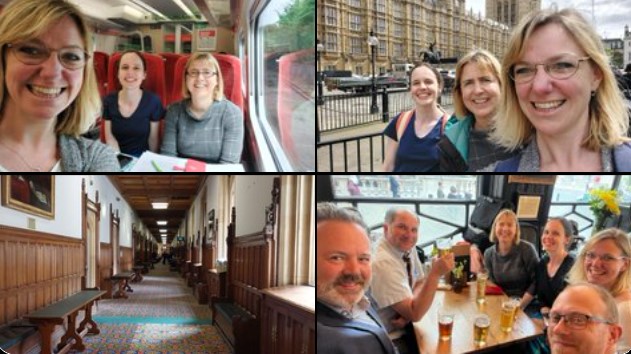Soil scientist Professor Pippa Chapman at University of Leeds travelled to London with three other experts to give evidence in a cross-party parliamentary inquiry focused on soil health.
There have been several soil health inquires this year, Pippa attended the second session which focuses on agriculture. The soil health inquiry was heard by the Commons Environment, Food and Rural Affairs (EFRA) select committee last May. This group is one of 19 that work in both the House of Commons and House of Lords. The purpose of this EFRA select committee is to examine the matters and policy of the Department for Environment, Food and Rural affairs (DEFRA).
The soil health inquiry will analyse the role of Government in preventing further soil degradation and restoring soil health across England. This is part of the new Environmental Land Management Schemes (ELMs) and Soil Health Action Plan which came into play in early 2023.
Their aim in this case was to explore the critical aspects and problems with soil health and agriculture. The second evidence session in the cross-party parliamentary inquiry into soil health focuses on the important role played by agriculture.
Pippa Chapman, soil scientist and Professor of Biogeochemistry, was expert witness to the committee and was joined by:
- Richard Bramley -an arable farmer and chair of the National Farmer’s Union (NFU) Environment Forum
- James Woodward – a sustainable farming officer from Sustain Alliance.
- James Robison – an organic dairy farmer from Cumbria and England vice chair of the Nature Friendly Farming Network
Two key questions for the panel were:
- What current management practices exist in agriculture to enhance soil quality?
- To what extent are sustainable soil management techniques, including regenerative farming, organic farming, and agroforestry, already being employed?
The committee asked the panel about challenges faced by land managers and farmers who have many conflicting demands.
Pippa and the other scientists offered their opinions and solutions to how the Government’s new Environmental Land Management schemes (ELMs), which are replacing the EU Common Agricultural Policy, will achieve sustainable soil management goals
They expressed a need for a more long term, holistic approach to sustain soil health which includes designing policies that follows the science and combine practices in a more logical way to maximise benefits for the farmer and their soil. Initiatives for agriculture need a long term vision as the formation of soil is very slow.
There are many benefits of improved soil health, to name but a few include are an increase in food security, greater crop resistance to disease and improved biodiversity. Find out more about the benefits of soil health here.
It is important for farmers and scientists to work together. Prof Chapman said:
“The sector is changing very rapidly and farmers are trying different things. A lot of the evidence is anecdotal so it is important to provide some independent evidence to scientists, but working together is critical.
A good scheme is the innovative farmers scheme where farming groups come together again and work with scientists to ensure that the evidence has been collected and can be exchanged with the farmer groups.”
Further key points raised included:
The information from these inquires often requires a response from Parliament. You can see the past and ongoing enquires here along with transcripts of all evidence and discussions.


